Catalytic converters are devices installed in vehicles to reduce harmful emissions produced during the combustion process.
You may find catalytic converters nowadays in traditional internal combustion vehicle models (like diesel engines in diesel cars, or like gas-powered vehicles), and play a crucial role in minimizing the release of toxic gases like carbon dioxide or carbon monoxide into the atmosphere.
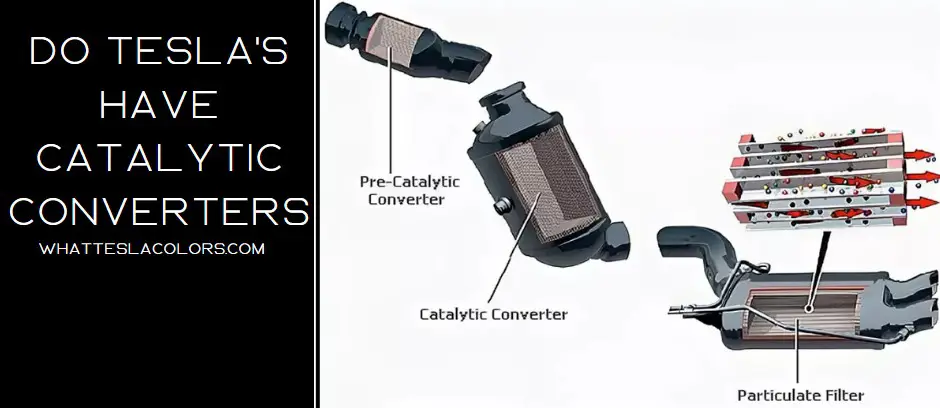
Contents
Addressing misconceptions: do Tesla’s have catalytic converters?
There is a common misconception that fully electric cars connected to the renewable energy grid, such as Teslas, do not require catalytic converters since they do not have an internal combustion engine.
However, it is important to note that while Teslas do not use catalytic converters in the same way as combustion engine vehicles, they still employ similar technology to address harmful emissions.
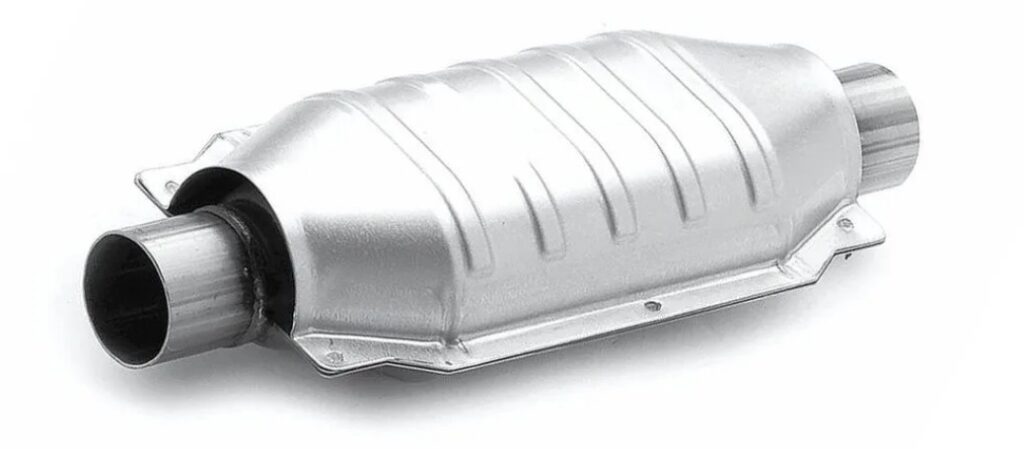
Purpose of catalytic converters in Tesla EVs
In Tesla EVs, catalytic converters serve a different purpose compared to their counterparts in ICE vehicles. Instead of reducing harmful gases from the combustion of fossil fuels, like nitrogen dioxide, they primarily focus on treating and purifying the air that circulates within the vehicle’s cabin in an oxidation chamber.
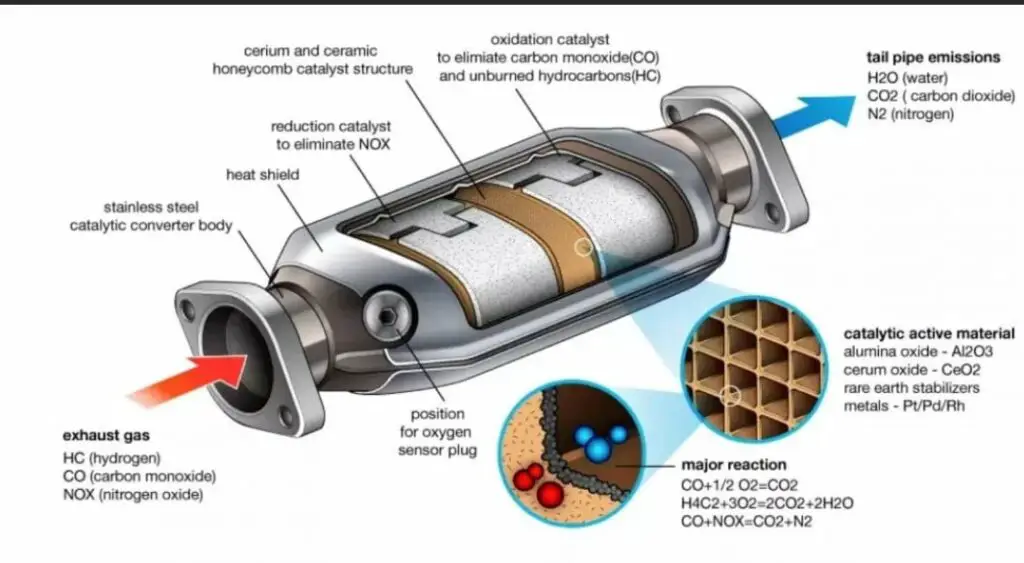
These catalytic converters filter out toxic gases, such as carbon dioxide and carbon monoxide, and reduce harmful emissions, thereby improving air quality.
Unique aspects of catalytic converters in Tesla’s electric fleet
Tesla’s approach to cabin air purification goes beyond standard catalytic converter technology. Their vehicles often feature advanced air filtration systems, commonly known as HEPA (High-Efficiency Particulate Air) filters, which provide superior filtration capabilities. These filters can effectively capture even the smallest particles, including allergens, bacteria, and viruses, thereby enhancing the overall air quality within the Tesla EVs.
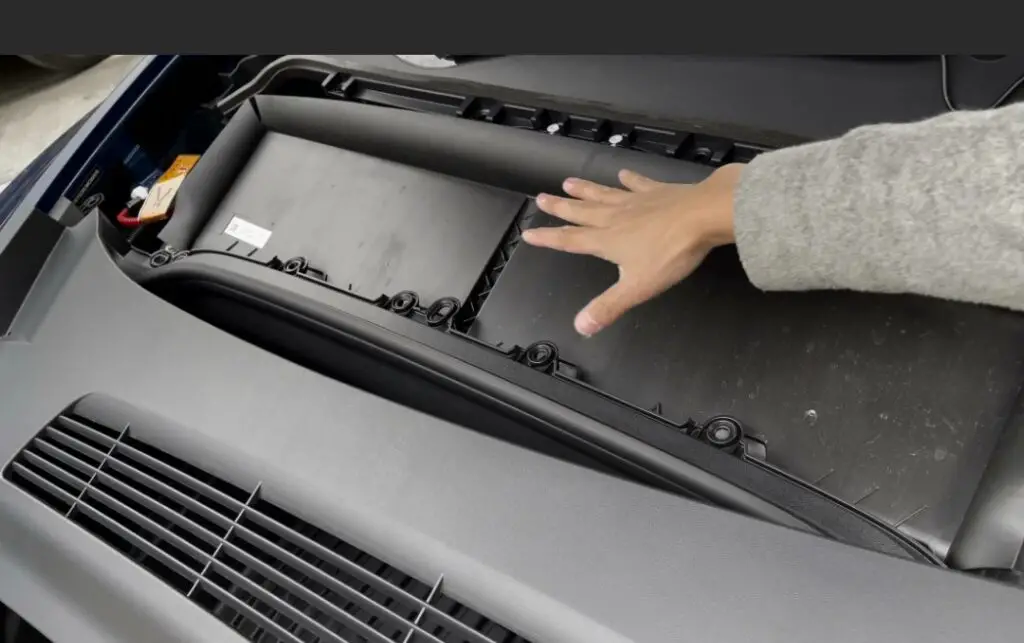
Additionally, Tesla’s catalytic converter technology in their electric fleet is designed to operate efficiently, forming water vapor and minimizing energy consumption, and ensuring optimal performance. These unique aspects reflect Tesla’s dedication to providing a clean and healthy driving environment for their customers, setting them apart in the realm of EV technology.
Tesla’s innovations in catalytic converter technology
Tesla’s dedication to enhancing catalytic converter technology showcases their commitment to providing not only zero-emission vehicles but also a clean and healthy driving environment.
Improvements made by Tesla in catalytic converter design
Tesla has been at the forefront of innovation in the realm of catalytic converter technology, even though their focus is primarily on electric cars. While traditional catalytic converters primarily target reducing harmful emissions like carbon monoxide, Tesla has directed their efforts toward enhancing the air quality inside their vehicles.
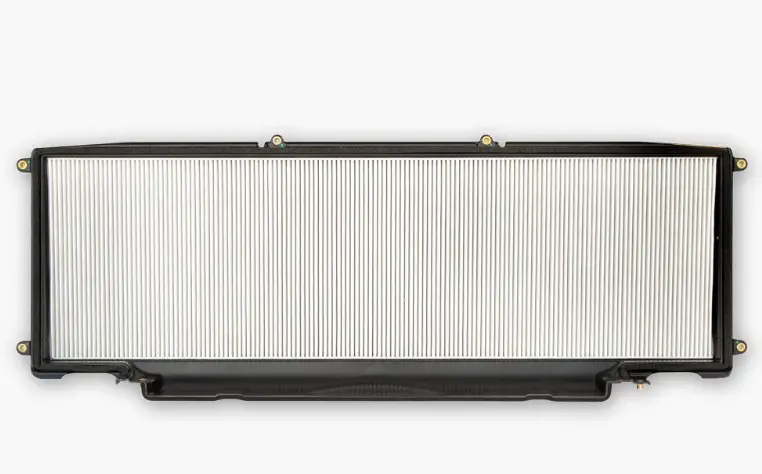
One notable advancement by Tesla is the integration of advanced filtering systems, such as HEPA filters, into their catalytic converter design.
These filters have the capability to capture extremely small particles, including pollutants and allergens, providing a significantly higher level of air purification compared to conventional catalytic converters.
Potential impact on future EVs and the automotive industry
Tesla’s innovations in catalytic converter technology have the potential to significantly impact not only future Tesla models but also the broader automotive industry. By focusing on advanced air purification within their electric vehicles, Tesla has set a new standard for cabin air quality in the electric cars market.
The incorporation of efficient catalytic converter systems, coupled with advanced filtration technologies, has the potential to inspire other automakers to prioritize air quality within their own electric vehicle offerings. As the demand for electric cars continues to rise, attention to cabin air quality becomes increasingly important for consumers concerned about their well-being during their travels.
Furthermore, Tesla’s advancements in catalytic converter technology could drive research and development efforts in the automotive industry as a whole. This could lead to the exploration of new methods for improving air quality and reducing emissions in electric vehicles.
Conclusion
In conclusion, Tesla’s focus on sustainability, combined with their innovative approach to catalytic converter technology, highlights their commitment to driving positive change in the automotive industry.
Their advancements have the potential to not only enhance the air quality within their own vehicles but also inspire industry-wide improvements, contributing to a greener and more sustainable future for transportation.
FAQ
Below are answers to common questions regarding catalytic converters in electric vehicles, addressing subjects like “do Teslas have catalytic converters” and more.
Does a Tesla car have a catalytic converter?
No, Tesla cars do not have traditional catalytic converters found in an internal combustion engine exhaust system. However, Tesla vehicles may incorporate advanced air water vapor purification systems to improve cabin air quality.
Does an electric vehicle have a catalytic converter?
Generally, electric vehicles do not require catalytic converters for their propulsion systems like in internal combustion engines. Electric cars utilize electric motors powered by batteries, eliminating the need for the combustion of fossil fuels and, subsequently, the need for catalytic converters.
Do new model cars have catalytic converters?
Most new model cars with internal combustion engines are equipped with catalytic converters. These converters play a vital role in reducing harmful substances produced in the car’s exhaust system, helping to minimize environmental impact.
Do all model cars have catalytic converters?
No, not all model cars have catalytic converters. Catalytic converters are typically found in vehicles with internal combustion engines that burn fossil fuels. However, hybrid vehicles and some advanced alternative fuel vehicles may also incorporate catalytic converters as part of their emissions control systems.


